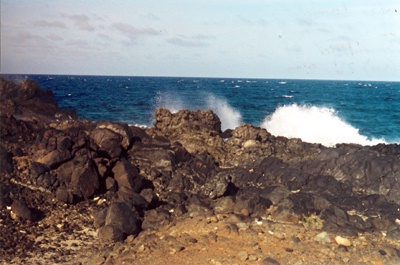All Nonfiction
- Bullying
- Books
- Academic
- Author Interviews
- Celebrity interviews
- College Articles
- College Essays
- Educator of the Year
- Heroes
- Interviews
- Memoir
- Personal Experience
- Sports
- Travel & Culture
All Opinions
- Bullying
- Current Events / Politics
- Discrimination
- Drugs / Alcohol / Smoking
- Entertainment / Celebrities
- Environment
- Love / Relationships
- Movies / Music / TV
- Pop Culture / Trends
- School / College
- Social Issues / Civics
- Spirituality / Religion
- Sports / Hobbies
All Hot Topics
- Bullying
- Community Service
- Environment
- Health
- Letters to the Editor
- Pride & Prejudice
- What Matters
- Back
Summer Guide
- Program Links
- Program Reviews
- Back
College Guide
- College Links
- College Reviews
- College Essays
- College Articles
- Back
LA Times Blowback
The Los Angeles Times has covered multiple follow up stories to the release of Blackfish. Hugo Martin explains the increased numbers in views of Orca shows since the documentary was released. This increase is about 5.6% across all theme parks and attractions. This is about a 1.2% increase from a recent drop in 2014, of about 4.6%. This article does a good job of bringing forward facts about the theme parks current situation. What this article clearly does not do is provide solutions to the given problems at SeaWorld parks. Things need to be changed at these parks, but in a reasonable fashion.
Martin tells of how much SeaWorld has changed since the release of the movie Blackfish, but only makes the reader believe that the theme park was as bad as the movie had it seem. SeaWorld has spent nearly 10 million dollars in ad revenue to recover and of that 10 million donated 1.5 million to the National Fish and Wildlife Foundation. Some could see that this as a negative. Maybe if SeaWorld had nothing to cover up they would not spend 10 million dollars to retaliate back at Blackfish. This is a major account because of how that money could have been spent. This money could have spent to making the life within the parks better for the remaining whales instead of for experiences of whales outside of the park. SeaWorld would have made themselves look better if they actually helped the current whales in captivity instead of hiding their lies.
SeaWorld comes to the table saying some missteps were taken. Today SeaWorld does not allow trainers to be as close to the animals. SeaWorld has actually required a physical barrier between the trainer and the orca whales. SeaWorld goes as far as to say that the “stock footage and video mismatched to the narrative” (SeaWorld par. 3). Implying that that Cowperthwaite manipulated footage to capture the audience's emotion. Also, that the film used animal rights activist and not scientist. In some ways, yes, the film should have gotten trainers from a more recent date. This would have provided an extra perspective into the life at a current day SeaWorld park. The only time the film attempted to do this was when they were asking park leaders about their knowledge of the whales. In turn, making park look worse. This could be a potential bias in this film.
This whole argument becomes difficult because the stories are so different within both tellings. Of course this gets even more muggy when news sources like Fox become involved in external investigations. The problem being that the credibility of Fox becomes ruined as it comes out they were in cooperation with SeaWorld. This almost immediately pokes a huge whole in any opinion or evidence presented as bias. This goes as far as Stossel claiming that, “Blackfish fabricated a scene in which a baby whale is taken from its mother” (Mosendz par. 4). Even if the scene was fabricated, how is a news source like Fox so willing to choose a side of a very public issue. Also, this in turn becomes a waste of time and resources as one of the first points that SeaWorld begins to make themselves look bad.
With SeaWorld continuing to work with other news sources it is hard to tell what influence the company may have had in recovering its own image. In 2014 an online poll was posted in Orlando asking if Blackfish had changed view of the popular theme park. An overwhelming 99% of people said that their opinion had changed. What was later found is that 54% of those votes (about 328 total votes) came from a single IP address. An ‘IP address’ is a unique string of numbers separated by periods that identifies each computer using the Internet Protocol to communicate over a network. The IP address came from SeaWorld.com. Meaning that SeaWorld faked the votes, and continuing to pull itself back in image. Instead this knowledge and energy could have been used to help set-up websites to gain donations for the remaining whales in captivity. Instead SeaWorld continued to focus on the parks self image, while it could have helped the whales.
Overall, Martin does a good job of promotion hard evidence before forming an opinion. This can be important as now people are getting two completely different stories of the same situation. The production of evidence allows the reader to formulate their own opinion. The only concern being is that what the author might have left out. Maybe this author contains a bias that is not immediate to the reader. What is apparent is that SeaWorld cares more about the company than the whales. The whales that they have essentially turned into a form of slave labor.

Similar Articles
JOIN THE DISCUSSION
This article has 0 comments.

I hope people will see that what Seaworld is doing is not right.